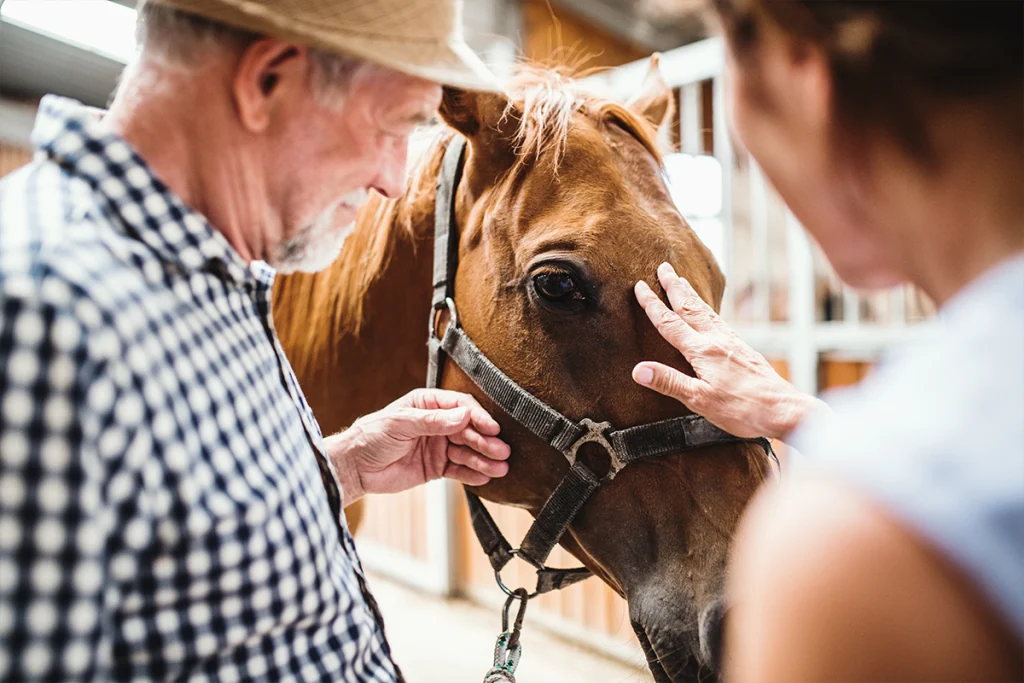As horses age, their care needs evolve just as they do with people. Understanding the unique requirements of senior horses is crucial to ensuring their health and happiness.
horse is a beloved companion or a working partner, paying attention to their changing needs can make a significant difference in their quality of life. Here’s a guide to help you provide the best care for your aging equine friend.
Understanding Aging in Horses
Horses are considered senior when they reach around 15 to 20 years of age, though some horses live well into their 30s. Aging brings a range of changes, including decreased metabolism, reduced dental efficiency, and weakened immune function. Recognizing these changes early can help you adapt their care appropriately.
1. Diet and Nutrition
As horses age, their nutritional needs can shift. Older horses may have trouble chewing and digesting food, so a diet rich in easily digestible nutrients becomes crucial. Here are some tips:
- Provide Senior Feeds: Look for feed specifically formulated for senior horses. These often have higher digestibility and balanced nutrition.
- Soaked Feed: Soaking feed in water can make it easier for older horses to chew and digest.
- High-Quality Forage: Ensure access to good-quality hay or pasture. If teeth issues make hay difficult to chew, consider offering alfalfa or other types of soft, high-nutrition forage.
- Supplements: Joint supplements and vitamins tailored for older horses can support joint health and overall well-being.
2. Dental Care
Dental problems are common in older horses. Regular dental check-ups are essential for preventing and addressing issues such as:
- Sharp Points: These can cause discomfort and difficulty eating.
- Decay: Horses can develop cavities and gum issues.
- Tooth Loss: Some older horses lose teeth, making it challenging to chew.
Schedule dental exams at least once a year, or more frequently if your vet recommends it. A dentist can help keep your horse’s teeth in optimal condition.
3. Exercise and Activity
Older horses still need regular exercise to maintain their physical health and mental well-being, but their exercise routines may need adjustment:
- Low-Impact Exercise: Opt for gentle activities like walking or light trotting. Avoid high-impact exercises that could strain aging joints.
- Mental Stimulation: Keep their mind active with low-key training or puzzle toys to prevent boredom.
4. Hoof Care
Senior horses often require more frequent hoof care. Regular trimming and proper shoeing are important for:
- Preventing Lameness: Aging horses may develop hoof issues more easily.
- Support and Comfort: Ensuring hooves are properly maintained can help support their overall comfort and mobility.
5. Health Monitoring
Regular veterinary check-ups become increasingly important as horses age. Routine health monitoring should include:
- Weight Management: Senior horses are prone to weight loss or gain. Monitor their weight closely and adjust their diet as needed.
- Vaccinations and Deworming: Keep up with vaccinations and deworming schedules to prevent diseases.
- Joint Health: Watch for signs of arthritis or other joint issues. Your vet can recommend appropriate treatments or pain management options.
6. Comfort and Shelter
Older horses may be more sensitive to weather changes and may need extra comfort:
- Shelter: Provide a clean, dry, and draft-free shelter to protect them from harsh weather.
- Bedding: Use soft bedding to cushion their joints and provide comfort, especially if they spend a lot of time in their stall.
7. Behavioral Changes
Aging horses might experience changes in behavior due to discomfort or cognitive decline. Be attentive to:
- Changes in Eating Habits: Loss of appetite or changes in food preferences can signal health issues.
- Behavioral Shifts: Increased irritability or changes in activity levels might indicate discomfort or pain.




